Meersman takes advantage of top sprinters' absence to claim Vuelta a Espana stage
'They know it's quite hard and they don't come here for one or two stages'
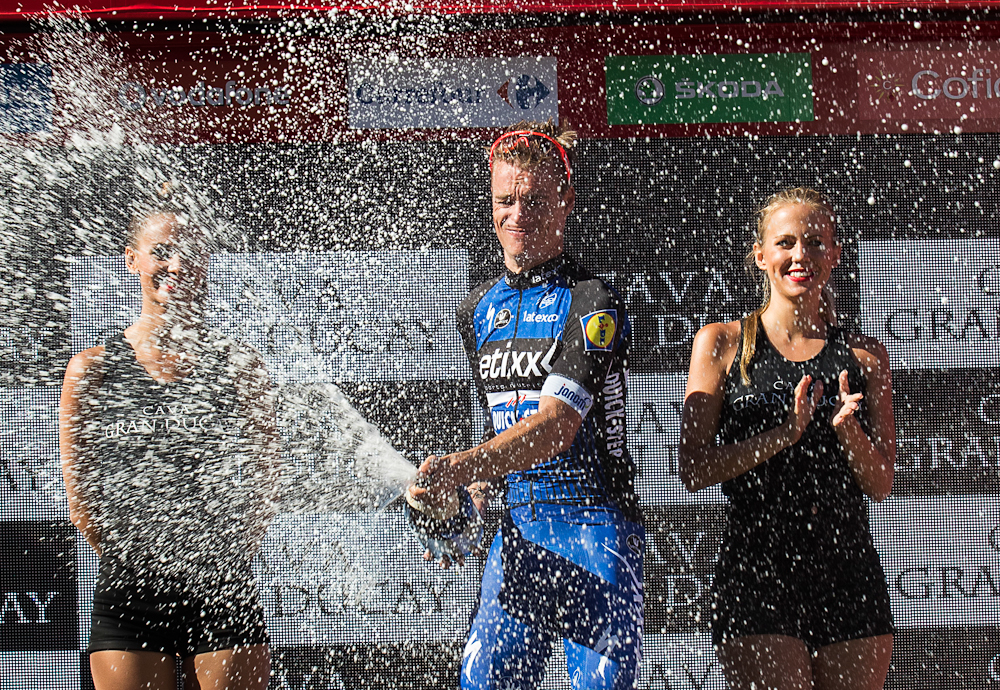
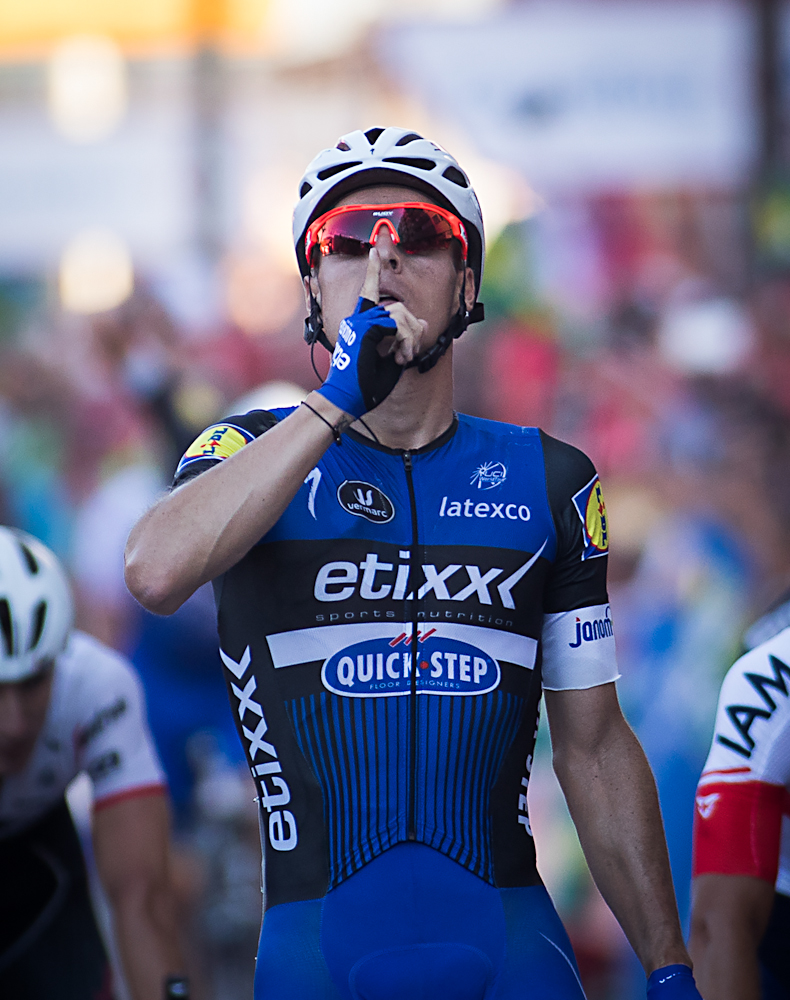
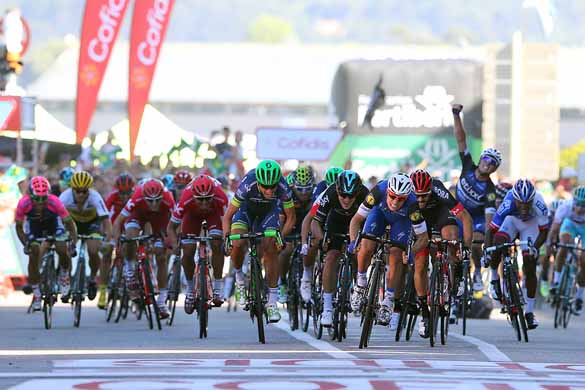
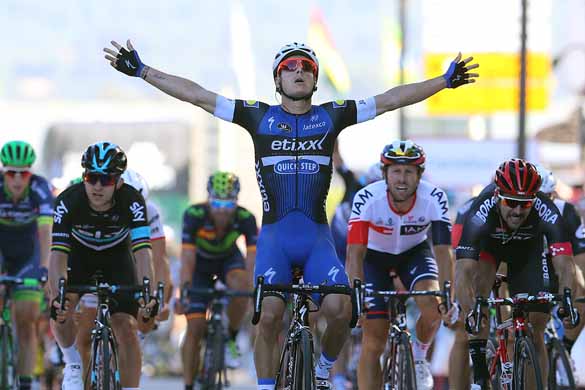
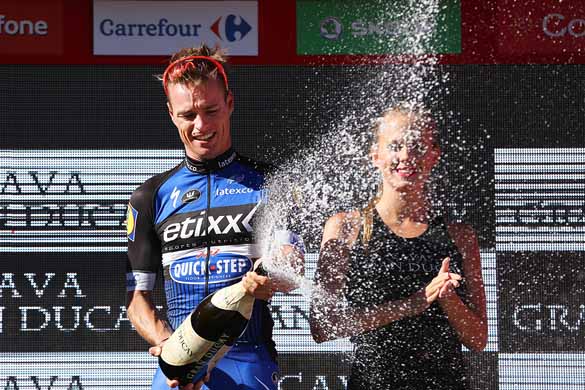
Vuelta stage 2 winner Gianni Meersman (Etixx-QuickStep) pulled no punches as he explained that the power vacuum in the Spanish Grand Tour’s bunch sprints provided the perfect opportunity for him to go for the victory.
A former winner of stages in WorldTour races like the Tour de Romandie, the Volta a Catalunya and Paris-Nice, Meersman has never captured a Grand Tour stage victory - until Sunday.
The 30-year-old Belgian's victory in the Vuelta a España was anything but flukey, though, well-placed on the left-hand side of the road as the peloton roared into the sweeping, slightly uphill finish in Baiona, then charging out of their slipstream to take the victory.
The combination of the lack of top names, a very technical run-in, almost everybody having all-but-fresh legs as the Vuelta has barely started, as well as a fairly laid back first few hours of racing on the stage itself all made for an unusually tumultuous sprint finish.
But Etixx-QuickStep had their man perfectly protected and positioned when it counted in the last few kilometres, and Meersman was able to power away for the biggest victory of his career to date. Coming when he has yet to sign a contract for 2017, his win could hardly have been better timed.
"The stage in the last 20 kilometres was quite hectic. Every team had their own sprinter and they all wanted to go for a good result," Meersman said. "The last five kilometres was also very windy but we stayed calm in 10th to 15th position."
"Then with 800 metres to go [team-mate Zdenek] Stybar was pulling and I still had Yves Lampaert in front of me with 400 metres to go. He started his lead out and with 200 metres to go I launched my sprint.
Get The Leadout Newsletter
The latest race content, interviews, features, reviews and expert buying guides, direct to your inbox!
"Luckily today, it all worked out exactly as we had planned."
Meersman admitted that without top-name fastmen at the race like his team-mate Marcel Kittel, the 2016 Vuelta was a whole different ballgame to the usual Grand Tour bunch sprints. That did not mean, though, he had not thought through how best to take advantage of this unusual scenario beforehand - just the opposite.
"I'm not sure exactly how different it is because we're still going very fast, but I think this Vuelta has opportunities for other guys to go for the stage wins and I took mine today. It was planned out for weeks before. I already had a strategy for today's stage."
"Then in the last five kilometres, you could see that every team was trying to put in three or four guys for the win, but mine worked out perfectly. I was feeling confident after Burgos" - where Meersman was briefly the leader and took two top three positions - "and the team also, so that was good."
There was no telling, he said, whether he could consider this win as breaking a glass ceiling or whether he had now reached his upper limit as a sprinter. "I don't know, a victory is a victory and I'm really happy it's in the Vuelta. The last time I raced here I was two times third [n the 2013 Vuelta's mass start stages he actually took one third place, two fourths and a fifth - Ed.] and every chance you get you have to take it 100 percent."
Looking further down the line, Meersman argued that "the Vuelta is a hard stage race, everybody knows it, if you look at the line-up, you'll see there's no top sprinters here because they know it's quite hard and they don't come here for one or two stages."
"But everybody can start here, everybody is free to participate, so we are here to make the best out of it, we are here to get stage wins and I think we start quite well."
He admitted that he had not looked any further ahead than the first week, though, saying he had no idea how many stages were favourable overall in the Vuelta for the sprinters. "I only know that tomorrow's stage is hard," he said. But with one win in the bag, however, Meersman already has reason to be satisfied whatever the future brings in the Vuelta.
Alasdair Fotheringham has been reporting on cycling since 1991. He has covered every Tour de France since 1992 bar one, as well as numerous other bike races of all shapes and sizes, ranging from the Olympic Games in 2008 to the now sadly defunct Subida a Urkiola hill climb in Spain. As well as working for Cyclingnews, he has also written for The Independent, The Guardian, ProCycling, The Express and Reuters.
